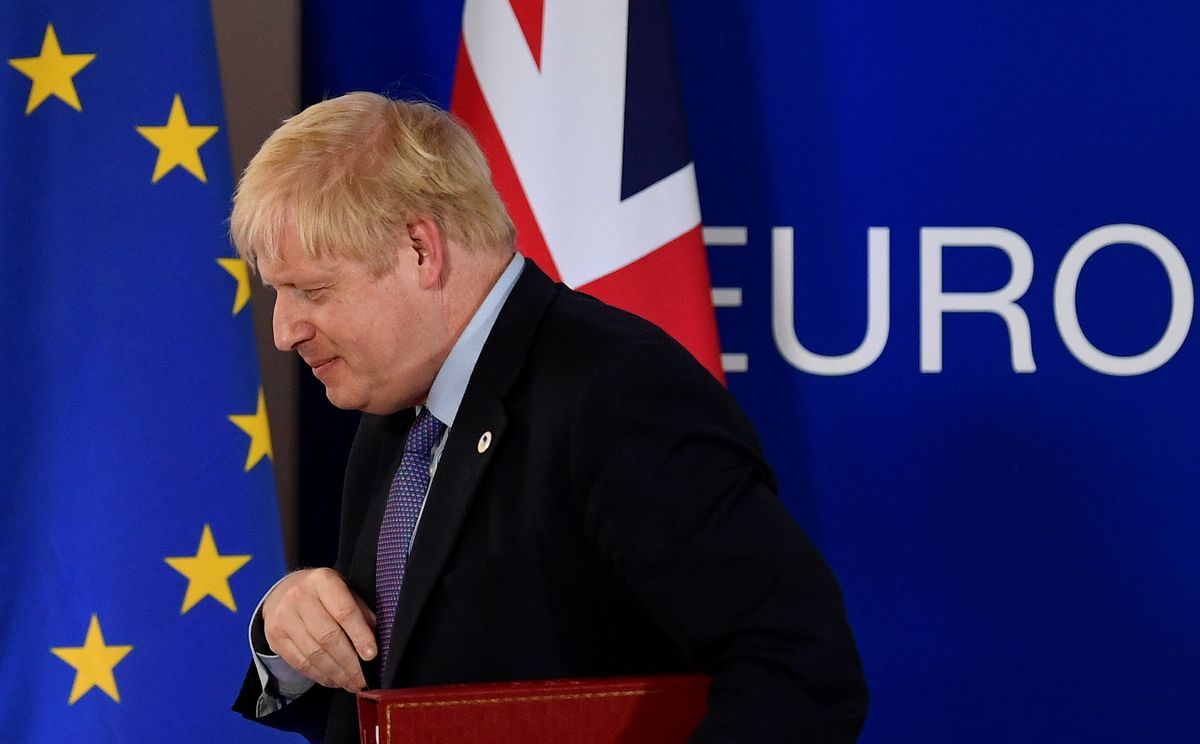You'd think, being the relatively hopeful person that you are, that the nauseating anguish of Brexit would be more or less over now that UK Prime Minister Boris Johnson has finally reached a deal with Brussels on how to extricate the UK from the European Union.
So much for hope. No sooner had Johnson announced a new agreement yesterday morning, than a fresh (and bad) twist came from Northern Ireland. The Democratic Unionist Party there, whose 10 MPs are critical for Johnson's majority in the UK Parliament, rejected the deal out of hand.
The new deal would leave Northern Ireland under many EU customs regulations for four years, after which the local Northern Ireland Assembly would hold a simple majority vote on whether to continue with that arrangement. Ireland is in favor. And even Northern Irish nationalists, who oppose Brexit, saw it as the least bad option.
Both Johnson and the EU saw this as an improvement on the earlier so-called "Irish Backstop" which would have left Northern Ireland under EU rules indefinitely.
As a reminder, the gordian knot of Brexit is how to remove the UK (which includes Northern Ireland) from the EU (which includes Ireland) without imposing a border between Northern Ireland and Ireland that could reignite sectarian and nationalist tensions on the island.
But the DUP doesn't like the new deal for two reasons. First, because in effect it sets up a customs border between Northern Ireland and the rest of the UK, which is unacceptable to staunch unionists like the DUP. And second, because the DUP wants to hold a veto over any future customs arrangements, rather than subject them to regular risky majority votes. The Northern Ireland Assembly is just about evenly split between unionists who favor Brexit and nationalists who don't.
What happens next?
The current deadline for Brexit – deal or not – is 31 October. It looks like the UK Parliament is going to vote on the new deal tomorrow. Without DUP support, Johnson will have a very hard time pulling together a majority in favor. He'll need to rustle up support from hardliners who will still view this deal as too generous to Brussels, as well as former members of his own party whom he recently expelled for not being hardline enough. He's likely betting that general exasperation with Brexit will win people over. We'll see.
If the deal does pass, it would likely be formalized with the EU within weeks and then, yes, Brexit would – knock on wooden heads – be near its end.
If not, Johnson will have to seek an extension from Brussels, and would probably force new elections in order to build a stronger majority in Parliament – in part so he doesn't have to rely on the DUP anymore.


















